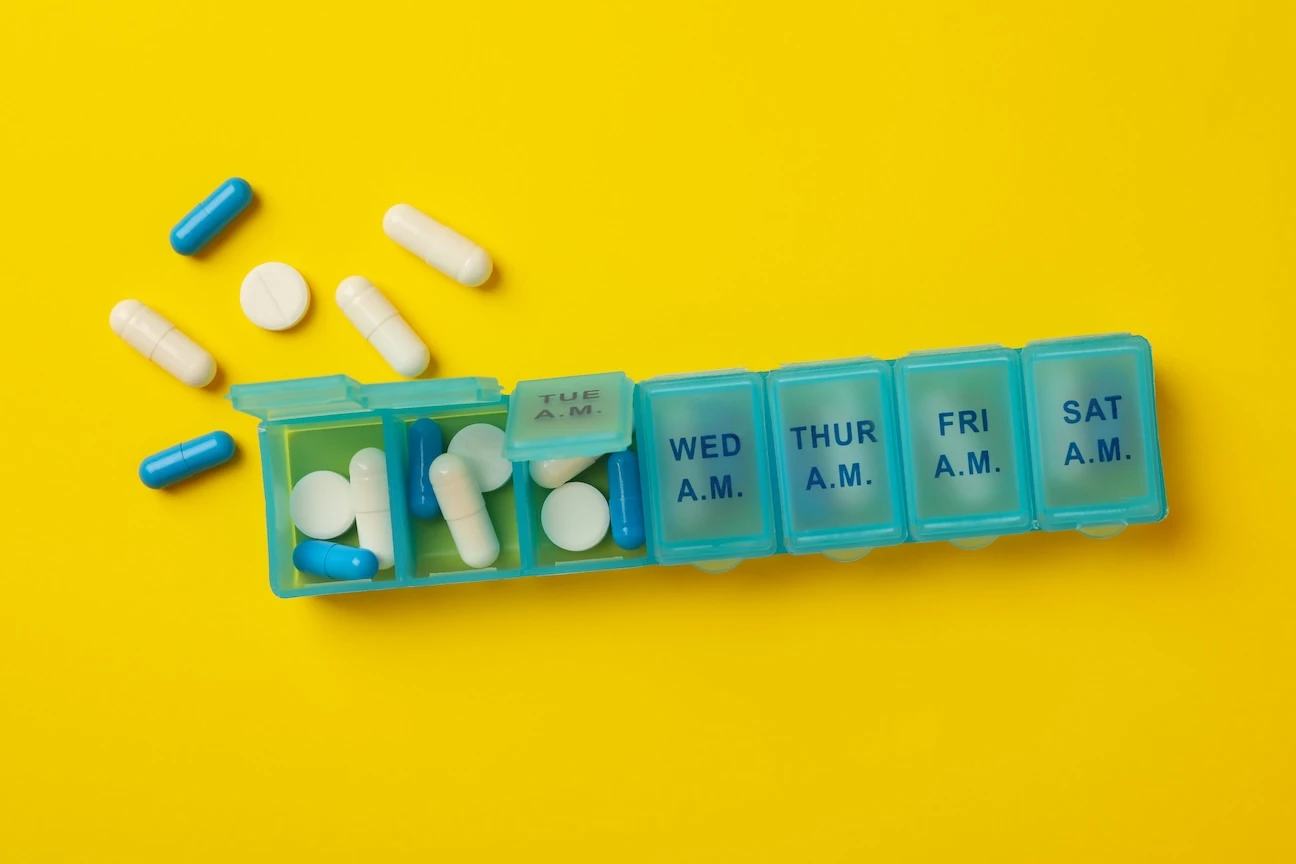Taking several prescriptions can feel routine, yet statistics show the routine is growing riskier every year. Roughly one-third of Americans aged sixty to seventy-nine now swallow at least five different drugs in a single day, a level doctors call polypharmacy. Each new pill can add benefit but also increase the odds of side effects, interaction-driven emergencies, and simple memory slips that leave doses doubled or forgotten. The good news is that a few steady habits built on clear communication, clever organization, and timely refill can strip away much of that danger and let every medication work precisely as the prescriber intended.
Your body processes medicines through the liver and kidneys, organs that naturally slow with age. If several drugs compete for the same metabolic pathway, blood levels may climb above the safe range and trigger dizziness, bleeding, or even life-threatening heart rhythms. Studies funded by the Centers for Disease Control and Prevention link polypharmacy to higher hospital-admission rates and lower quality of life, especially when ten or more daily drugs enter the mix. Understanding these stakes turns “taking a pill” from a chore into a critical piece of personal safety.

Keep an Up-to-Date Medication List: The foundation of safe drug use is a single, comprehensive list that lives in your wallet, phone, and home medicine cabinet.
The National Institute on Aging recommends writing down every prescription, over-the-counter product, vitamin, and herbal supplement, along with the strength, dose, and time of day you take them. Review the list before each doctor visit and pharmacy pickup, cross out medications you have stopped, and add new ones immediately so no professional is left guessing.
Work with One Pharmacy and Schedule Regular Reviews: Pharmacists use software to spot harmful combinations, but the system only works if every prescription flows through the same database.
Johns Hopkins experts advise choosing a single pharmacy, mail-order, or local, and asking for a “Medication Therapy Management” review at least once a year to verify necessity, dosing, and potential overlap. The review may be free if you hold a Medicare Part D plan and take multiple chronic drugs. Set a calendar reminder each spring or fall: an uninterrupted conversation with your pharmacist can uncover forgotten side effects and safer alternatives long before trouble starts.
Make Refills Predictable with Synchronization Programs: Running out of medication, even for a day, can send blood sugar, blood pressure, or mood into a tailspin. Many pharmacies now offer “med-sync” programs that line up refill dates so every prescription is ready on the same calendar day each month. GoodRx pharmacists report that synchronization cuts missed doses by nearly twenty percent and slashes the number of trips to the counter, a win for mobility and gas budgets. Pick a refill date that fits your schedule, perhaps the first Monday after Social Security deposits, and enroll during your next pickup.
Turn Organization into Habit with Pill Organizers and Smart Tech: Color-coded boxes divided by day and time are still one of the most reliable safety tools. Right at Home caregivers find that seniors who load a weekly organizer on Sunday night rarely miss or repeat doses.
Tech-savvy adults can upgrade to electronic dispensers that chirp, flash, or text a caregiver when a dose is late, and recent reviews highlight Bluetooth pill caps that track openings and sync with smartphone reminder apps. Choose whichever device feels natural; the key is creating a ritual, filling the organizer after dinner each week, or checking a phone alert with morning coffee, so the habit sticks even on hectic days.
Watch for Drug Interactions and High-Risk Combinations: Interactions fall into two broad camps: drug-to-drug and drug-to-food. Blood thinners can become dangerously potent when paired with certain antibiotics; grapefruit can magnify statin levels; ibuprofen can blunt the effectiveness of some blood-pressure pills. AmeriCare Plus notes that the most critical safeguard is transparency,; tell every provider, including dentists and eye doctors, about all the medications and supplements you use. If a new prescription arrives, ask, “How does this fit with my current list?” “Which side effects mean I should call immediately?” and “Could a non-drug option work just as well?” Those fifteen seconds of curiosity act like a seat belt for your bloodstream.
Store, Dispose, and Travel Safely: Heat and humidity can degrade drugs before the expiration date, turning a bathroom cabinet into the worst spot for pills. Johns Hopkins advises a cool, dry shelf out of children’s reach, and insists that light-sensitive medications remain in amber bottles. Dispose of leftovers at DEA-approved take-back sites or use FDA-endorsed disposal pouches; flushing is rarely recommended and can taint water supplies. When traveling, keep medicines in their original, labeled containers within a carry-on bag to avoid temperature extremes and to clear airport security without hassle.
Health is dynamic; prescriptions that made sense last year may be too firm after weight loss or unnecessary after a procedure. Symptoms such as new dizziness, swollen ankles, or unexplained fatigue deserve a call to the prescribing doctor within twenty-four hours. Sound Health Wellness recommends bringing the complete medication list to every specialist appointment so that additions do not duplicate existing therapy. An annual doctor-led “deprescribing” conversation can often trim doses or strike redundant drugs, reducing side-effect risk and out-of-pocket costs without sacrificing control of chronic diseases.
Managing multiple medications does not have to feel like juggling glass bottles in the dark. A master list, one trusted pharmacy, synchronized refills, dependable organizers, and open conversation with every clinician form a safety net that catches errors before they fall on your health. Add regular reviews and innovative disposal, and the complex web of prescriptions becomes an orderly routine supporting longer, steadier living. Start tonight: jot down every pill you swallow, tuck the list by the front door, and build tomorrow’s medication plan on the confidence that nothing significant will slip through the cracks.